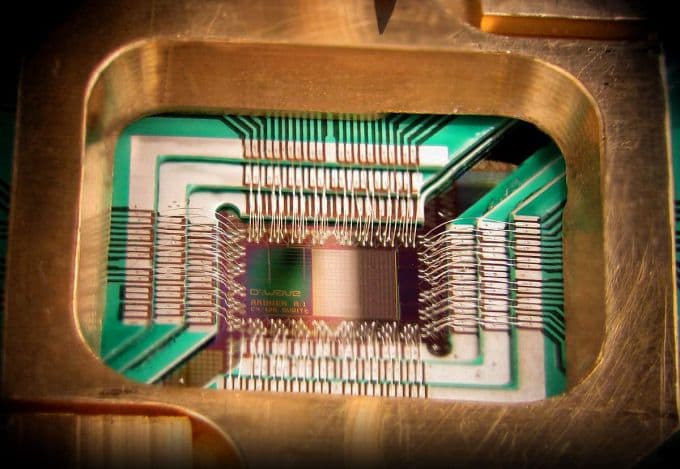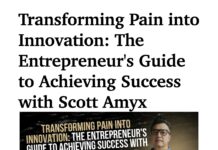Within the next several years the biggest changes and strongest influence from IoT will be seen in the industrial sector and in critical infrastructure, with focus on Middle East and South America as legacy is of less importance there and the implementation of IoT is an opportunity for expansion. Due of the growing amount of data that IoT produces, the real take off of IoT will happen together with quantum computing as then computing and security obstacles can be solved at the same time, says Scott Amyx, IoT Strategist, CEO at Amyx+ and IBM IoT Futurist. Interview by Julia Weinzettl.
Scott Amyx will be speaking at the M2M/IoT Forum on March 27th-28th in Vienna, Austria.
What economic sector will be most influenced by IoT within the next years?

Scott Amyx: In my opinion the primary focus near term is still the industrial side. That’s fairly a canvassing statement. IoT will have strong influence in supporting the automotive industry, the building industry and consumer electronics, but fundamentally we are really talking about a B2B in some cases a B2B2C type of situation. Now additionally we are going to see momentum around critical infrastructure – electric grid, gas pipelines, telecommunications for example are starting to be influenced by IoT, specifically the regions we are going to see arise are the Middle East, Asia, and South America.
Why there?

Scott Amyx: This not too surprising as in more mature markets like the EU and North America utilities or energy companies are primarily compliance and regulation driven. In order to make these types of investments, cost savings and efficiency in automation have to be overwhelming. If you already have an existing set of infrastructure, it’s difficult to overhaul it as it’s incremental, whereas in the case of South America, the Middle East, and other emerging markets, investment in IoT basically is an opportunity for expansion. We are talking about laying down new fiber optics next to utilities – whether it’s gas lines or electric lines – under the ground. More importantly they are interested in getting very granular data at each point. It’s not just data at the last mile or at the beginning and the end of the transmission but it´s actually the data in the entire process. One application for this data is for analytics but it’s also increasingly used for security (monitoring vulnerability and breach to critical national infrastructure). Which is a double sided sword, because as we start to allow these IP addressable types of connectivity, we need to make sure that there are no potential gaps opened, that leave a backdoor entry into the entire system of the grid. It’s not just a matter of economy but also a political and military defense issue.
If we look into the future within the next ten years what changes will we find in our society because of the technological advancements?
Scott Amyx: I think there will be significant changes in the next ten years, but I wonder if this time frame is closer to the next twenty or twenty five years. At the moment there is a lot of discussion and controversy around the topics of AI, robotics and Fourth Industrial Revolution and its role in society. The World Economic Forum, McKinsey and other analysts forecast net job loss from automation.
What is your view on this matter?
Scott Amyx: One thing that people don’t really appreciate is that there is a difference between task versus job. For instance if you think about the old days when there was an actual person who would route phone calls and connected your call to where you wanted to call. That’s a task and that’s where automation comes in.
I think what people have to recognize is that tasks will be automated – whatever those tasks are – but the jobs will change to work with new technologies. Moreover it’s not sudden labor displacement or destruction, but rather a fluid, dynamic evolution of the labor economics. Automation will lead to the loss of some jobs that are more task-oriented but it will emerge into the creation of new jobs. The way I see it is that automation helps us to increase the standard of living. Automation of tasks frees me up to have more time and resources as I don’t have to allocate money to those tasks any more. That means I can reallocate my time and budget into other things. The future of jobs is in human to human relationships in particularly in empathy business models.
Do you have examples for that?

Scott Amyx: If you look into the last ten years, there has been a significant rise in empathy roles such as professional coaching, elderly care, fitness coaches, as well as counselors and psychotherapists. Let’s take this into the future: when we travel to different parts of the world sometimes what we are looking for is connection (offline), maybe I just want to have coffee with somebody – another human being – in a new city that I’m not familiar with or maybe I want a tour guide – not because I can’t access my map – but because I want to connect with another human being. These kind of jobs will not only not vanish but increase.
Coming back to the topic of IoT – do you think that the major breakthrough will come once we change to quantum computing?

Scott Amyx: Yes, and the reason for that is, as you are probably aware, in the Internet of Things, there are some pervasive and difficult-to-solve challenges that the industry face (and will likely face for years to come). Security is one of the biggest challenges hampering the growth of IoT. There are other issues that prevent IoT from truly taking off on a large-scale, e.g., interoperability, network latency, privacy, etc. Quantum computing has the potential to not only break all current cryptography but also create new bullet-proof security that cannot be hacked by classical computers or even quantum computers.

Other benefit of quantum computing is that it will handle certain types of computation faster as well as handle more complex computations that are fundamentally different from classical computers. That allows for us data crunch with quantum speed and the ability to run all the inputs at the same time and get immediate results. With IoT, the volume of data and different data types are increasing. We are capturing data from couches, floors, walls, paints, agriculture, water, and just about everywhere. Predictive data analytics will be able to support machine learning on the edge on a cloud-like scale without ever going to the Internet. Many use cases represent complex optimization problems across sectors and use cases. Take for instance a smart city. You have systems of systems, from traffic system, lights, CCTVs, meters, utilities, smart buildings and so on. How do you verify that everything is working correctly and together in an orchestrated fashion? Well, quantum computing can potentially handle the verification and validation process quickly across all these systems and ensure constant optimization of systems of systems.
Originally published on M2M/IoT Forum (Xing) on March 15, 2017. Author Julia Weinzettl.
Achieve IoT Success
We understand the challenge of transforming an organization to embrace the Internet of Things. Let us help you increase your probability of success.
Contact Amyx+ for a free initial consultation.
About Amyx+
IoT Business Transformation | Strategy | Innovation | Product | Data Analytics
- Voted Top IoT Rockstar by HP Enterprise
- Voted Top IoT Influencer by Inc. Magazine
- Voted Top in the Business of IoT by Relayr
- Voted Top Global IoT Expert by Postscapes
- Voted Top IoT Authority by the Internet of Things Institute
- Featured as a Top Internet of Things Company by Postscapes
- Voted Most Influential in Smart Cities and IIoT by Right Relevance
- Winner of the Cloud & DevOps World Award for Most Innovative Vendor
Amyx+ is an award-winning IoT business transformation firm specializing in IoT strategy, innovation & product development. As a thought leader in the Internet of Things, Amyx+ has the creative horsepower and the development prowess to execute even the most complex client engagements.
Amyx+ is working with international and multinational enterprises to help 1) understand the impact of IoT disruptions, 2) formulate and sharpen their IoT strategy, 3) quantify the business case, 4) experiment, learn, validate, 5) develop game changing technologies, and 6) launch innovative IoT products and services worldwide.
We employ a flexible methodology and approach to fit the client and needs & objectives while adapting to changing IoT environments. We have presence in San Francisco, NYC, and throughout Europe.
Website: http://amyxinternetofthings.com


















